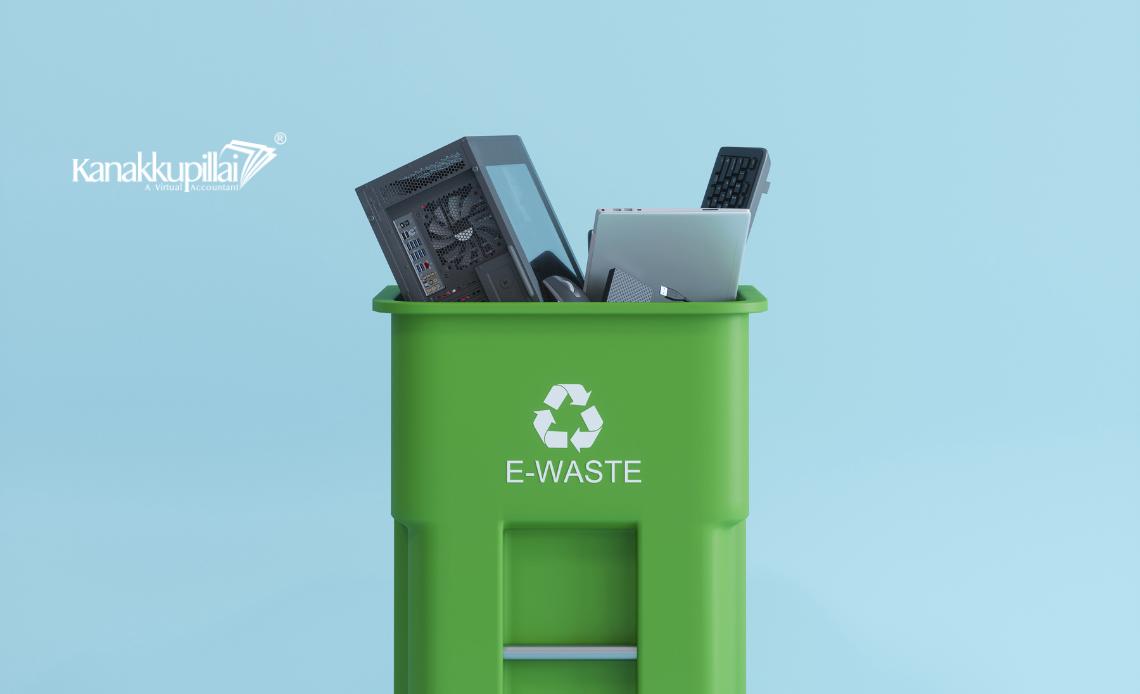E or electronic waste has become a global issue because of its environmental and health implications. E-waste production continues to rise as the digital generation resumes to flourish. This results in an increase in e-waste. The Ministry of Environment, Forest & Climate Change (MoEF&CC) intends to combat illegal e-waste export and thereby tackle the associated issues. In this blog post, we will briefly examine MoEF’s initiatives to oversee illegal e-waste export.
Understanding the Issue
Discarded electronic devices like computers, smartphones and other electronic equipment usually form E-waste. Before exploring the schemes, it’s essential to analyse the level of the e-waste problem. Notably, illegal e-waste export and its improper disposal lead to environmental pollution. It also causes soil and water contamination. Also, e-waste may have adverse health effects on both ecosystems and humans.
MoEF’s Initiatives
Extended Producer Responsibility or EPR:
The concept of EPR makes the producers accountable for overseeing the complete lifecycle of their items. This also includes the proper disposal of e-waste. Manufacturers are mandated to establish collection centres and take-back systems for such waste. While this initiative encourages responsible production and consumption, its success relies on the active participation of producers and effective monitoring.
E-waste Management (EWM) Rules:
The MoEF&CC introduced the E-waste Management (EWM) Rules. These rules were framed to administer not only the generation of e-waste but also its collection, transportation, processing, and disposal. EWM rules aim to deter the illegal export of e-waste. But, these rules promise the environmentally sound management of such discarded items. However, the efficacy of these rules is based on their enforcement and implementation.
Authorised E-waste Recyclers:
The MoEF&CC has developed a system for authorising e-waste recyclers and dismantlers. This ensures that these processes adhere to environmental norms. The move is intended to streamline e-waste via legal and regulated channels, averting its illegal export. However, hurdles like the presence of unregistered recyclers and the lack of monitoring infrastructure can obstruct the effectiveness of this initiative.
Awareness and Capacity Building:
The Ministry of Environment, Forest & Climate Change (MoEF&CC) has started awareness programs. The campaign tends to make the public, stakeholders and industries. Additionally, these campaigns elaborate on the hazards of improper e-waste disposal and the advantages of responsible recycling. Capacity-building programs for enforcement agencies and stakeholders are also implemented to enhance their ability to tackle illegal activities. Nonetheless, the consequences of these programmes depend on the depth of their reach and the effectiveness of communication strategies.
International Collaboration:
Because e-waste is a global issue, the MoEF&CC has participated in international collaborations. This aids in tackling the illegal export of e-waste. Moreover, agreements and partnerships with other countries aim to enhance traceability, information sharing and the enforcement of rules. However, the success of these collaborations depends on the dedication of all participating nations and the establishment of standardised practices.
Critical Analysis
While the MoEF&CC’s schemes represent a step in the right direction, some critical aspects call for attention:
- Enforcement Challenges: The effectiveness of the E-waste Management Rules and associated schemes depends majorly on enforcement. Corruption, inadequate monitoring infrastructure and a lack of robust penalties for violations can compromise the success of these measures.
- Informal Sector Challenges: Usually, the informal sector performs a major portion of e-waste management, which the regulatory framework may not cover. Integrating informal recyclers into the formal system is vital for comprehensive e-waste management.
- Public Participation: While awareness campaigns are vital, encouraging active public participation in e-waste management remains challenging. Incentives and convenient disposal options can motivate individuals to participate responsibly.
- Producers’ Accountability: The success of EPR depends on producers’ dedication to fulfilling their responsibilities. Robust measures and incentives are necessary to ensure compliance. Moreover, periodic audits must be done to assess the efficacy of these programs.
- Technological Innovation: The rapid evolution of technology poses challenges in recycling particular electronic components. Frequent research and development (R&D) are mandatory to address emerging issues. This research and development is also necessary to find sustainable solutions for recycling newer generations of electronic devices.
Conclusion
Indeed, the efforts made by the Ministry of Environment, Forest & Climate Change or MoEF&CC to tackle illegal e-waste export are remarkable. This is done through a comprehensive set of schemes. However, the success of these measures depends on overcoming various challenges. This includes enforcement issues, the integration of the informal sector, and ensuring the accountability of producers. A serious and ongoing analysis of these initiatives is important to refine strategies and combat emerging challenges in the dynamic landscape of e-waste management. By combining regulatory measures with international collaboration and technological innovation, the MoEF can contribute majorly to the global effort to combat the environmental and health impacts of e-waste.





